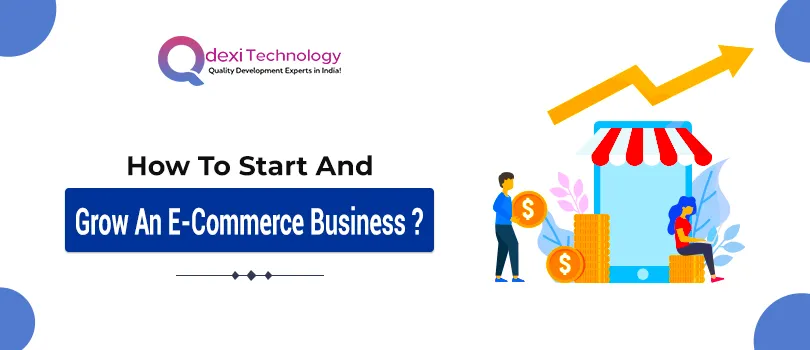Embarking on the journey of starting and growing an e-commerce business is an exciting endeavor that holds vast potential in the digital era. As the online marketplace continues to expand, leveraging e-commerce solutions and development services becomes essential for building a robust and successful online presence. In this comprehensive guide, we'll explore the key steps to kickstart your e-commerce venture and the pivotal role that e-commerce development services play in fostering sustained growth.
-
Define Your Niche and Target Audience:
Before diving into the technicalities of e-commerce, clearly define your niche and target audience. Identify a specific market segment where your products or services can stand out. Understanding your target audience enables you to tailor your e-commerce strategy to meet their needs effectively.
-
Choose the Right E-Commerce Platform:
Choosing the appropriate e-commerce platform is a crucial decision. Evaluate platforms like Shopify, WooCommerce, Magento, or others based on your business requirements, budget, and scalability needs. Each platform offers unique features, ease of use, and customization options, so choose the one that aligns with your vision.
-
Invest in Professional E-Commerce Development Services:
To ensure a seamless and tailored e-commerce experience, invest in professional e-commerce development services. Experienced developers can create a visually appealing, user-friendly website with essential features like secure payment gateways, responsive design, and efficient inventory management.
-
Implement Mobile Responsiveness:
Mobile commerce is on the rise, making mobile responsiveness a non-negotiable element of your e-commerce strategy. A responsive design ensures that your website functions seamlessly on various devices, providing a positive user experience and maximizing your reach.
-
Optimize for Search Engines (SEO):
Enhance your online visibility by optimizing your e-commerce website for search engines. Regularly update your content, encourage customer reviews, and ensure a fast website loading speed—all contributing factors to improved search engine rankings.
-
Develop a Robust Marketing Strategy:
Create a thorough marketing strategy for your e-commerce firm. Use a variety of digital marketing channels, such as social media, email marketing, content marketing, and paid advertising. Engage with your audience, build brand awareness, and create compelling promotional campaigns to drive traffic and conversions.
-
Prioritize Customer Experience:
Customer experience is a cornerstone of e-commerce success. Implement user-friendly navigation, clear product descriptions, and intuitive checkout processes. Offer personalized recommendations, respond promptly to customer inquiries, and create a seamless purchase journey to build customer loyalty.
-
Secure Payment Gateways:
Instill trust in your customers by implementing secure payment gateways. Partner with reputable payment processors to ensure the security of financial transactions. Clearly communicate your website's security measures to build confidence among potential customers.
-
Utilize E-Commerce Analytics:
Leverage e-commerce analytics tools to gain insights into customer behavior, website performance, and sales trends. Analyzing this data allows you to make informed decisions, refine your strategy, and identify areas for improvement.
-
Scale with E-Commerce Solutions Services:
As your business grows, consider scaling with e-commerce solutions services. These services encompass features such as inventory management, order processing, and customer relationship management. Adopting scalable solutions ensures that your e-commerce infrastructure can accommodate increased demand and complexity.
Conclusion:
Starting and growing an e-commerce business requires a strategic blend of creativity, technical expertise, and a customer-centric approach. By defining your niche, choosing the right e-commerce platform, investing in professional development services, optimizing for search engines, developing a robust marketing strategy, prioritizing customer experience, ensuring secure payment gateways, utilizing analytics, and scaling with e-commerce solutions services, you can establish a thriving online presence.
Remember, the e-commerce landscape is dynamic, and staying ahead requires adaptability and continuous improvement. Regularly assess market trends, customer preferences, and technological advancements to refine your e-commerce strategy and position your business for sustained success in the competitive digital marketplace.






